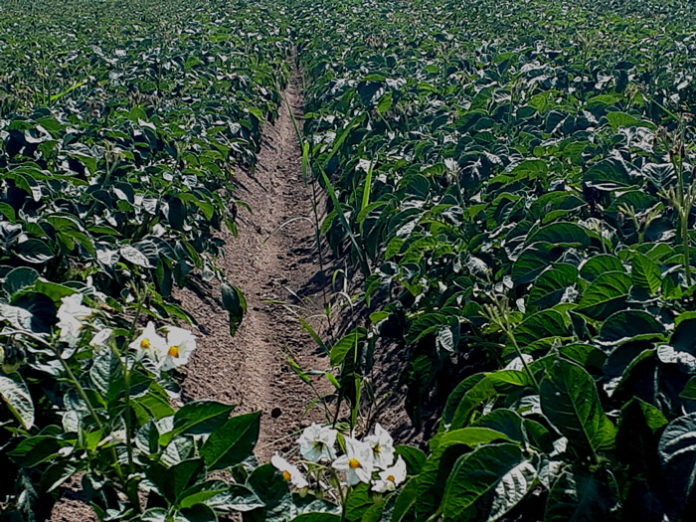Teagasc Horticulture Development Department has published a short report on the Impact of the current drought on the field vegetable sector. The report provides factual information on the impact on a crop by crop basis.
The current drought that the country is experiencing is having a very serious effect on the field vegetable sector. Stephen Alexander, the Teagasc vegetable advisor, said; “There has been virtually no rain in one of the main production areas, County Dublin, since the beginning of June. The current soil moisture deficit (SMD) ranges from 70mm in the west of the country to 95mm in the east which in effect means it will take weeks of rainfall to restore soil to normal moisture levels. And to make matters worse the dry weather comes in on top of one of the worst springs on record; March was cold and wet whilst April delivered above average rainfall in all areas.”
These adverse weather patterns have created very difficult growing conditions for all outdoor vegetable crops. Due to the late spring, growers were late to get sowing and planting. In some cases, sowings/plantings were missed altogether because of wet soil conditions. Early crops that would have been sown or planted out in March were skipped; other crops were planted out in less than favourable conditions, a situation made worse with the subsequent drought due to the initial poor establishment.
The report highlights the cost implications for primary producers of vegetables. Input costs this season have risen substantially due to the drought. The three main cost centres are: Irrigation; Pest and weed control; Harvesting.
Where irrigation is available, it costs in the region of €100/acre for every 25mm application of water.
The warm and dry weather has increased pest and disease pressure in crops and reduced the efficacy of available crop protection measures.
Harvesting a crop like broccoli and cauliflower which normally can be harvested in 2-3 passes is now taking up to 5 due to dry weather effects on broccoli maturity and size. This has an obvious labour cost implication.
The report estimates that a significant amount of irrigated crops presented to market this year run the risk of being loss making due the additional costs incurred in getting them there. In crops without irrigation, there is a range of losses, from complete crop failure to severely reduced yields of marketable produce.
According to Andy Whelton, Teagasc Horticulture Advisor based in the south, complete crop failures are occurring where irrigation is simply not available and frequency of complete failures will accelerate in the coming weeks if the moisture deficit remains.
Dermot Callaghan, Head of the Teagasc Horticulture Development Department said; ‘While the short-term impacts for growers have been detailed and are acute, it is important not to lose sight of the possible long-term impacts on the supply base and the viability of the vegetable enterprises. All actors in the supply chain – growers, CDC’s, retailers and consumers, all have a responsibility to ensure the long-term viability of an industry that puts local, fresh, top quality vegetables on the supermarket shelf.”

The full report can be viewed at https://www.teagasc.ie/







